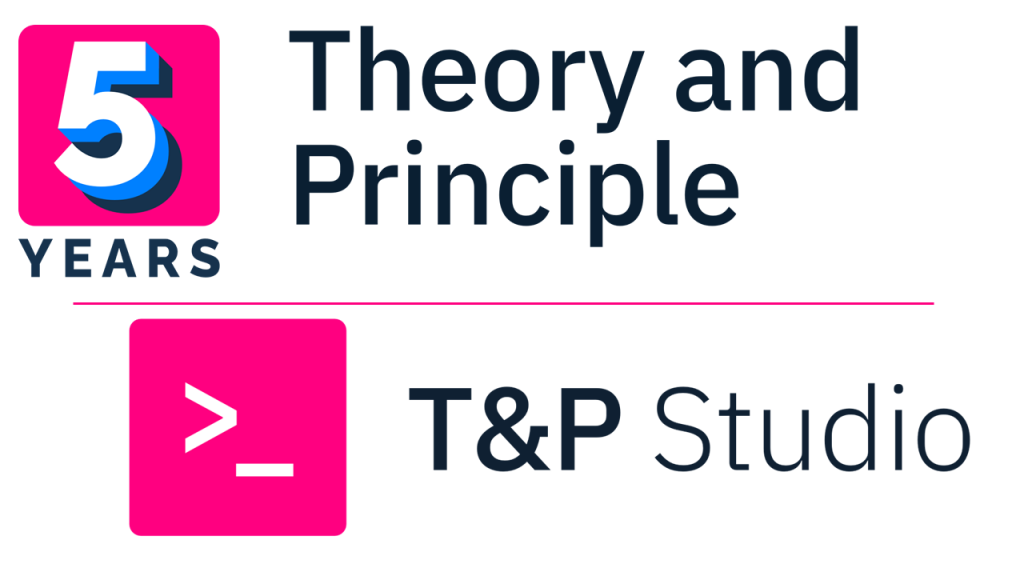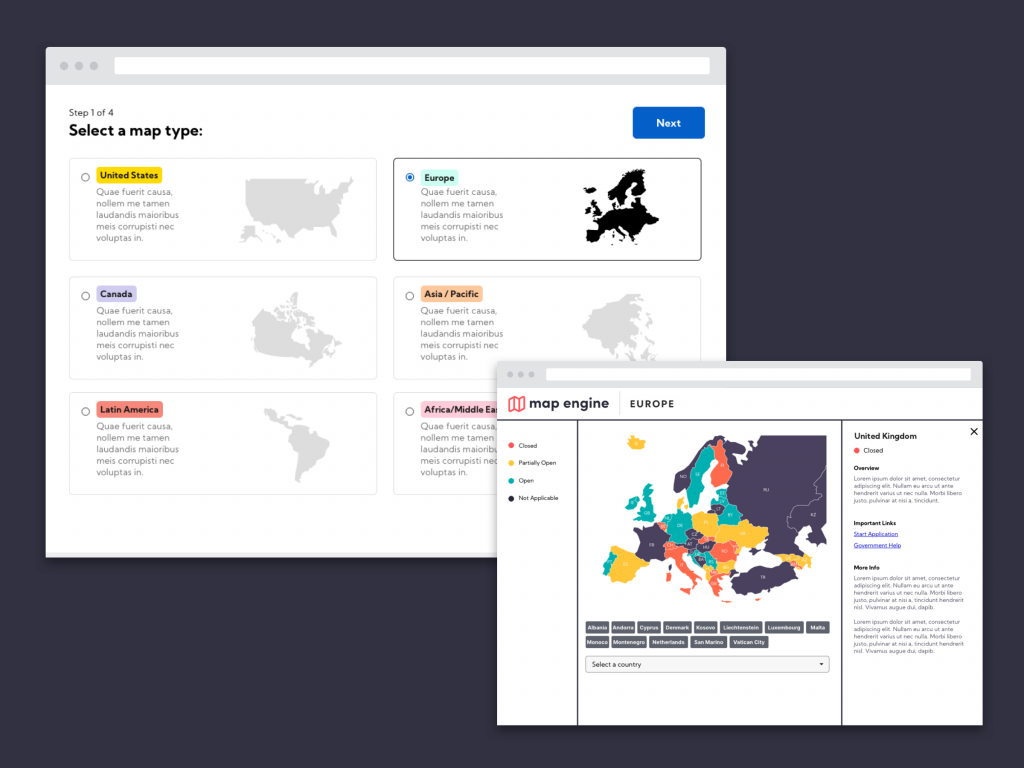As the legal technology design and development company Theory and Principle marks its fifth anniversary this month, it is launching a new business arm to co-develop legal tech products in partnership with legal industry organizations or individuals.
The new business, T&P Studio, will work with partners in the legal industry who have ideas for products but who may not have the product team, budget or other elements needed to bring a product to market, according to T&P’s founder and CEO, Nicole Bradick.
T&P will validate partner ideas and then manage all areas of product strategy, design, development, and launch, she said. Depending on the terms of the partnership, the T&P team will also participate in ownership, go-to-market strategy, sales and marketing.
(Note: Bradick discusses both the anniversary and the new business on the episode of my LawNext podcast that will post tomorrow.)
When it launched in 2018, T&P was the only company focused solely on custom software design and development for law firms, legal tech companies, legal aid organizations, and others in the legal industry.
Some of the custom design and development work the company has done includes a user interface redesign for the contract review company BlackBoiler and a redesign of the UI and UX for the contract lifecycle management company Agiloft.
While it will continue that work, it has more recently begun co-developing legal tech products, starting in 2021, when it launched its first co-developed product, Map Engine, which it built and brought to market in a partnership with Sente Advisors, a legal tech innovation consultancy. Map Engine makes it easy and economical for law firms to create attractive and interactive maps to visualize multijurisdictional data.
(They have continued to expand the Map Engine product, as I have reported here and here.)
Last year, T&P unveiled its second co-developed product, Virtual Law Clinic, which it developed in conjunction with he law firm Simpson Thacher & Bartlett. The product is designed to make it easier for law firms and legal organizations to manage their pro bono matters, enabling them to assign matters to lawyers, monitor case statuses, document outcomes, and provide training materials and forms. Last Setpember, T&P rolled out a major upgrade to that product.
Now, with the formal launch of T&P Studio, the company is making a greater commitment to co-developing SaaS products and possibly even developing products on its own. It already has one new co-developed product in development, Bradick said.
“As a company, we design, build, and deploy modern, beautiful legal technology products rapidly — we’ve simply had our hands in more legal tech products than any company out there,” said Bradick. “As a result, we have the team, infrastructure, experience, and processes to partner with organizations who have ideas but not the resources to move their concepts forward.
“This model is a win for us, our partners, and the industry. We want to see more innovative SaaS products get to market faster by de-risking the effort for anyone with a great idea.”
The nature and terms of the partnerships will vary depending on the partner and the project, Bradick said, but can involve some combination of cost-sharing, task-sharing, revenue-sharing, or something else.
“For example, some partners may want a product to exist, but want no part in the ownership, sales and marketing, while other partners may want all of the rights to own, market, and sell the product, but cannot afford the initial build.”


